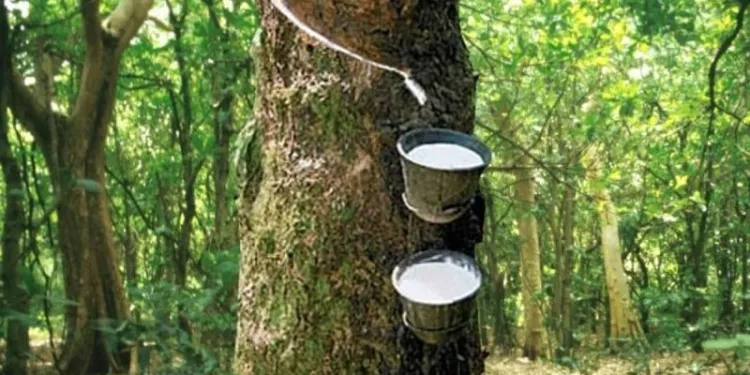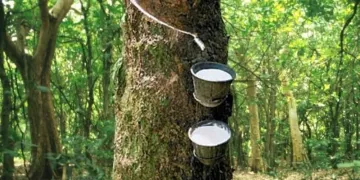Raising concerns over the decline in natural rubber production, the Parliamentary panel has called upon the Finance Ministry to allocate adequate funds to carry out re-plantations optimally.
The limited budget outlay should not affect re-plantation activities and any constraint would affect rubber output, the Action Taken Report (ATR) on the rubber industry, submitted to the Rajya Sabha by the Parliamentary Standing Committee on Commerce, said.
The committee, headed by Chandan Mitra, noted that inadequate allocation of funds to the Rubber Board would have a cascading effect on the activities and functioning of crucial departments like production, research and extension.
There has been a decline in the subsidy level in percentage terms, while the approved development cost on one hectare of rubber plantation has registered a substantial jump from the 11{+t}{+h} to the 12{+t}{+h} plan. Existing rates are comparatively very low and not even 20 per cent of the amount provided in other rubber producing countries.
The report hinted that subsidy would help motivate growers to undertake re-plantation, who are otherwise reluctant to cut trees in view of the long gestation period of 6-7 years.
The panel suggested the Centre to consider incentivising exports by including rubber under Videsh Krishi Grama Udyog Yojana scheme.
Citing the case of imports, the committee urged the Centre to ensure rubber imports are need-based and its quantum is determined on the basis of the gap between domestic production and consumption.
To meet the demand of the industry, it asked the Rubber Board to prepare a blue print on short-term, medium-term and long-term action, to improve production.
According to the committee, the shift from sheet rubber to block rubber will adversely affect small, marginal and tribal farmers, especially since processing of sheet rubber does not require sophisticated machinery. Sheet rubber always helps farmers fetch a high farm gate price.



























